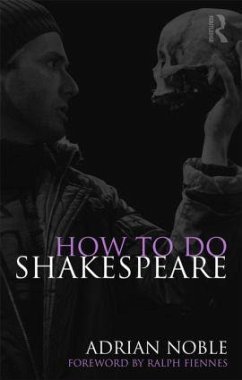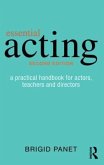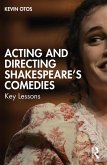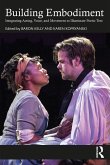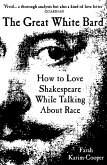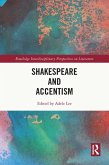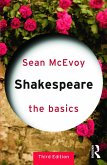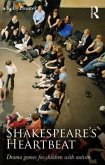'Adrian Noble vigorously highlights the extraordinary rhythmic, linguistic patterns Shakespeare gives the speaker. Any actor will find this book invaluable. For any student of Shakespeare it should be essential.' (From the Foreword by Ralph Fiennes)
'How can I bring the text alive, make it vivid, how do I make people hear it for the first time? How can I enter into that world and not feel a stranger. How can I not feel clumsy and inept? ... How can I speak it without sounding artificial or "actory"? In other words, how can I make it real ...?'
Adrian Noble has worked on Shakespeare with everyone from oscar-nominated actors to groups of schoolchildren. Here he draws on several decades of top-level directing experience to shed new light on how to bring some of theatre's seminal texts to life.
He shows you how to approach the perennial issues of performing Shakespeare, including:
wordplay - using colour and playing plain, wit and comedy, making language muscular building a character - different strategies, using the text, Stanislavski and Shakespeare shape and structure - headlining a speech, playing soliloquys, determining a speech's purpose and letting the verse empower you dialogue - building tension, sharing responsibility and 'passing the ball'.
This guided tour of Shakespeare's complex but unfailingly rewarding work stunningly combines instruction and inspiration.
'How can I bring the text alive, make it vivid, how do I make people hear it for the first time? How can I enter into that world and not feel a stranger. How can I not feel clumsy and inept? ... How can I speak it without sounding artificial or "actory"? In other words, how can I make it real ...?'
Adrian Noble has worked on Shakespeare with everyone from oscar-nominated actors to groups of schoolchildren. Here he draws on several decades of top-level directing experience to shed new light on how to bring some of theatre's seminal texts to life.
He shows you how to approach the perennial issues of performing Shakespeare, including:
wordplay - using colour and playing plain, wit and comedy, making language muscular building a character - different strategies, using the text, Stanislavski and Shakespeare shape and structure - headlining a speech, playing soliloquys, determining a speech's purpose and letting the verse empower you dialogue - building tension, sharing responsibility and 'passing the ball'.
This guided tour of Shakespeare's complex but unfailingly rewarding work stunningly combines instruction and inspiration.

